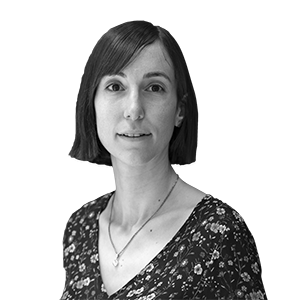"Catalonia is an occupied land, but in a more modern way than Palestine."
Actor Ahmed Tobasi premieres his monologue 'And Here I Am' at the Incert festival, about his life in the Jenin refugee camp.


BarcelonaActor Ahmed Tobasi (Jenin, 1984) arrives at the headquarters of the Catalan Association for Peace, laden with four suitcases so bulging that he struggles to get them through the door. It's been five months since the Israeli army attacked the Jenin refugee camp and destroyed his home. Since then, Tobasi has been homeless. "For now, I'm going back around the world and staying where I do my show. My family is all scattered," explains Tobasi, after admitting that he slept little last night, "but much better than in Palestine," where "you can hear the drones 24 hours a day and you never know when a bomb will hit you." The actor is in Catalonia to perform his monologue. And here I am as part of the Incert Festival. He will perform at the Granollers Auditorium (Thursday, May 8), the Teatro Principal in Olot (Friday, May 9), the Sala Beckett (Saturday, May 10 and Sunday, May 11) and the Única in La Seu d'Urgell (Friday, May 16). Tobasi spent his childhood and youth in the Jenin refugee camp and is part of The Freedom Theatre, a community theatre project that has been promoting professional shows with Palestinian companies around the world since 2006. The performer has seen friends and family members die at the hands of the Israeli army. And here I am It's the story of his life told in the first person, because Tobasi is convinced that "it's the best way to show people everything that's happening in Palestine." To construct the text, the actor entrusted himself to playwright Hasan Abdulrazzak and Zoe Lafferty for direction. The show is performed in English with Catalan subtitles and is, according to the actor, "a production about freedom, but not only the freedom of the land, but also of the mind and the individual."
The monologue reflects the situation of thousands of Palestinian children who have grown up in a context of war, and seeks to shock Western viewers into not viewing the conflict from a distance. "We live under occupation, they're bombing our country, the army is everywhere. What do you want us to do? When you create a conflict where everyone is threatened, and there's no work, no money, no food, and no water, dreams disappear. Young Palestinians only think about revenge, fighting, and becoming martyrs," Theatre tries to attract new generations to culture and give them an alternative that doesn't involve weapons. "How do you create terrorists? It puts everyone in a situation of extreme poverty, without any help, and for them the only salvation will be God. Europe should react, work with the community, and ensure that the aid it sends doesn't end up in the hands of corrupt people," says the actor.
A large tourist complex in Gaza
The show is rooted in Palestine, but Tobasi's message goes further. The performer argues, both on and off stage, that the conflict with Israel is just the tip of the iceberg of a global situation that should concern everyone: the control of the world by the wealthy. "Fifteen years ago I came to Barcelona and now I'm back. I see how the city has changed. Large Israeli companies have bought the buildings in the city center, many Catalans can no longer afford to live there because of the price of housing, in a few years you'll have to pay a tax to enter the city, and only the rich will be able to do so in Catalonia. Palestine," the actor emphasizes.
Tobasi rails against capitalism and doesn't understand how citizens of the global north don't realize that, little by little, their cities are also being occupied. "The war to come won't be about identity, but about classism. The rich are only motivated by business. Why are they attacking Gaza? Their grand project is to wipe out the entire population and build a huge tourist complex. They don't care about eradicating a culture, traditions, or history. All they think about is making more money," says Tobasi.
And here I am It premiered in 2017 in London and has since been performed on stages in countries such as Belgium, the United Arab Emirates, Chile, and even Palestine. Performing it in the Jenin refugee camp was, for Tobasi, a way of coming full circle. "I remember how many young people came to thank me because until then there were many things they didn't know, such as what it means to be in prison or how we experienced the First Intifada," Tobasi notes. "At that moment, I realized that theater is, above all, a fundamental tool for education."
